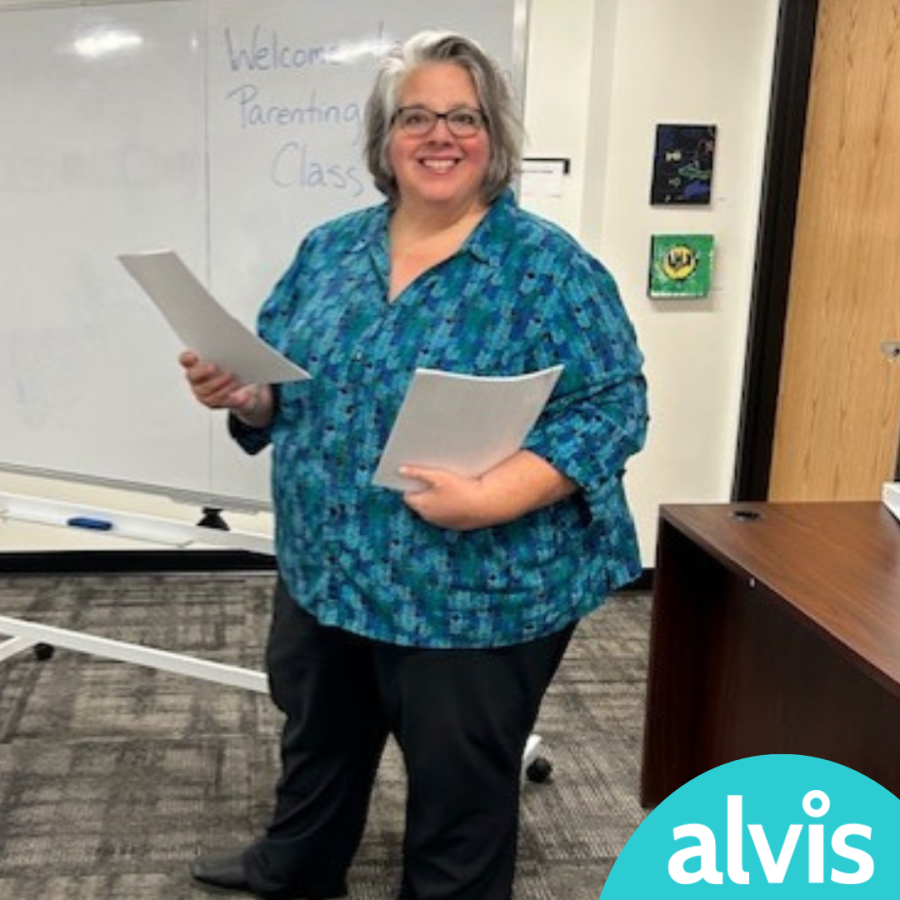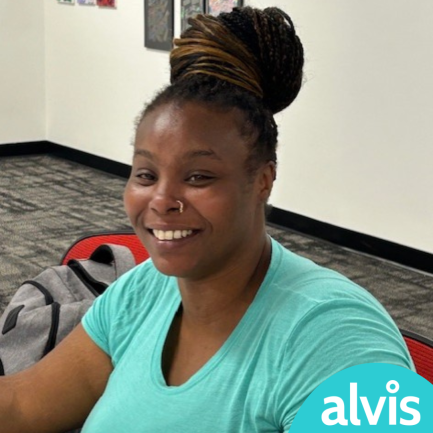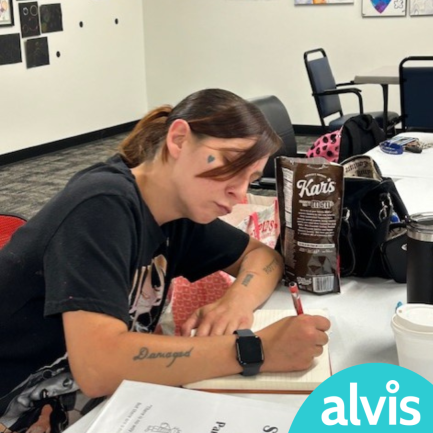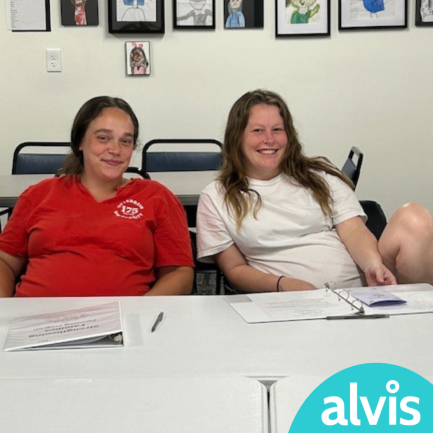
Parenting classes lead by Julie Janson, Alvis Families and Children’s Program Manager, help mothers in the Amethyst Recovery Program learn important skills and concepts that can enhance their child’s development and mental health. The eleven week parenting class is offered four times a year to all Amethyst women who have children under the age of 18 and plan to have a relationship with them. Janson has worked with Alvis for 9 years. She holds a master’s degree in adult education and numerous certifications in child development.

“Parenting class was honestly my little miracle. I learned so much,” admitted Jody B, mother of an 11 year-old-daughter. “The most important takeaways were to always validate my child’s feelings, give her my full attention when she wants to talk, discipline her with realistic and appropriate punishments, use words of affirmation and spend quality time together. Learning about parenting and appropriate age-related behaviors really made us closer than I could have imagined.”
Julie Janson, head of the Families and Children’s Programs at Alvis, says, “Our program is evidence based and focuses on strengthening families, preventing problems and learning about dysfunctional risk factors, including trauma. Children whose parents have or had substance abuse illness are at a higher risk to encounter emotional issues and addiction than the general population. I teach moms about positive communication, children’s LUV languages, emotional development and how to be role models. I use a tool box approach to teach women how to apply the best methods of parenting their children. If they don’t have an appropriate tool to help their child, I recommend one. Even simple things like taking 10 minutes to sit on a child’s bed at night gives them loving support. Our moms also need to be aware of what normal behaviors are during their child’s developmental years. Seven-year-olds will tell a lie, and a two-year-old will throw tantrums.”

Experts agree, however, that in raising children the most significant element is emotional self-regulation. Emotional Regulation means helping children learn to regulate and control their emotions and behavior. This process is developed by parents creating routines and predictability. Schedules and organization are vitally important to provide a sense of order and encourage self-control. Other methods to teach emotional regulation, Janson says, include reframing negative thoughts, expressing emotions constructively, showing acceptance and demonstrating problem-solving.
For further and more in-depth information on emotional regulation read, An Age-By-Age Guide to Helping Kids Manage Emotions https://www.gottman.com/blog/age-age-guide-helping-kids-manage-emotions/.

Natalie W, mother of 2-year-old Landon, lists some of the most critical concepts she learned in Janson’s parenting class:
- The most important 5 minutes you can spend with your child is when they wake up, when they get home from school or daycare, and before they go to bed.
- The first 6 years of a child’s life are the most important ones to instill love, values and morals.
- How to use the L.U.V. method. Listening, Understanding and Validating helps children to feel hear and understood.
- Try to create your own rituals and special times.
- After the age of 6, give your child 15 minutes of your undivided attention every day and do whatever it is they want to do alone with you. No phone…just you and them.
Mekiah U, mother two daughter, Kadence 15 and DeAndrea, offers a wise and beautiful thought to raising daughters. “Remember that our children are just “tiny humans” and deserve a voice too. Do not stifle their feelings or creativity.”
